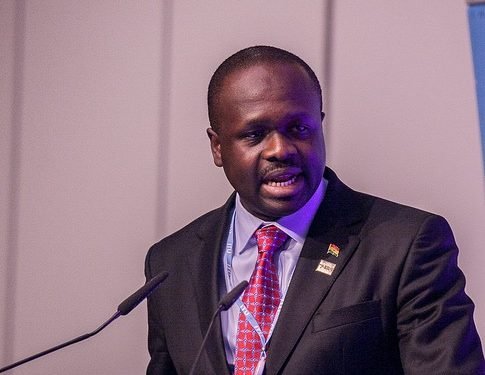
In a bold move to strengthen Ghana’s national emergency preparedness, Defence Minister Dr. Edward Omane Boamah has announced a new initiative that will see 10,000 National Service Scheme (NSS) personnel undergo intensive training under the National Service Emergency Response Readiness Programme. The programme is scheduled to kick off in August 2025.
The training aims to bolster Ghana’s response capability in times of national emergencies, ranging from natural disasters to public health crises. The announcement was made during a high-level stakeholder engagement in Accra, where Dr. Boamah emphasized the importance of a resilient national service force.
“This programme is not just about crisis response; it is about building a culture of readiness among our youth,” the Minister said. “We are tapping into the energy, discipline, and nationwide presence of the NSS to create a first line of support in any emergency.”
The Emergency Response Readiness Programme will cover comprehensive modules, including basic first aid, fire safety, disaster risk management, public health protocols, and digital emergency communications. NSS personnel participating in the training will be strategically deployed across all 16 regions to ensure a balanced and prompt response structure.
The Defence Ministry is collaborating with the National Disaster Management Organisation (NADMO), the Ghana Armed Forces, and the Ghana Health Service to implement the curriculum. According to the Minister, these partnerships are key to ensuring both the quality and sustainability of the programme. Join us on WhatsApp now for more news https://chat.whatsapp.com/IwYdwerq679JpLNCAQXatL?mode=r_c
This programme positions young Ghanaians at the heart of the country’s emergency preparedness strategy. With over 100,000 NSS personnel deployed annually across sectors such as education, health, and agriculture, this new role introduces a dynamic, service-oriented dimension to their national contribution.
NSS Executive Director, Osei Assibey Antwi, described the initiative as a “game-changer for national development and youth empowerment.” He further noted that selected service personnel will receive certificates and potential post-service employment opportunities with emergency services, non-governmental organisations, and municipal agencies.
Regional training centers are already being prepared to host the first cohort of NSS trainees. In addition to technical training, participants will also engage in scenario-based simulations tailored to the specific vulnerabilities of their assigned regions. For instance, coastal zones may focus more on flood management, while inland regions may prioritize fire or epidemic response.
Local assemblies and community leaders will also be engaged to ensure integration with existing emergency plans. The government hopes that by embedding trained NSS personnel into communities, emergency response times will drastically improve and lives can be saved.
Dr. Boamah concluded the announcement by saying, “Preparedness saves lives. This initiative is an investment in the safety and resilience of every Ghanaian.”
The Emergency Response Readiness Programme marks a turning point in the operational scope of national service in Ghana, transforming it from a developmental tool to a vital component of the country’s emergency response strategy.



